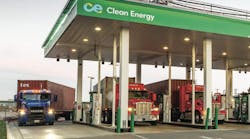The political parlor game being played out in Washington over whether or not the economy “goes over” the political construction known as the fiscal cliff is one helluva cliffhanger.
Yet even though we’ve all heard for months now of the disastrous consequences if the cliff is not averted, policy and economic experts don’t all agree on what may happen if President Obama and the Republican leadership of the House and Senate don’t forge a compromise to steer the economy away from the cliff before the last day of this month.
According to Federal Reserve Board Chairman Ben Bernanke, avoiding the cliff would be the “most effective way Congress could help to support the economy right now.” And he stated in late November that 2013 could be a "very good year" for the economy-- if Congress and the President move quickly to dismantle the cliff.
On the other hand, some experts prefer such terms as “fiscal slope” and “fiscal ramp” to describe the legislative phenomenon. That’s because they contend the impact of Washington inaction would be drastic but gradual and, in some ways, reversible.
“The slope would likely be relatively modest at first,” wrote Chad Stone, chief economist at the Center on Budget and Policy Priorities think tank, in a recent analysis piece. It’s his view that a “relatively brief implementation of the tax and spending changes required by current law should cause little short-term damage to the economy as a whole.
“The federal budget is expected to shrink dramatically between 2012 and 2013 if the laws governing revenues and spending remain largely unchanged,” explained Stone. “With no action from policymakers, that sharp reduction in the deficit would slow the economy dramatically, likely creating a mild recession in 2013.”
However, he emphasized that even under that scenario, “the economy will not go over a cliff and immediately plunge into another Great Recession” in January.
“Rather, most households will begin to receive somewhat smaller paychecks due to higher income tax rates and the expiration of the payroll tax cut, but the impact on their cash flow would play out over the year rather than being concentrated in January,” Stone pointed out.
“More important,” he added, “there is bipartisan support for extending most of the middle-income tax cuts through 2013, so the impact of a temporary expiration of the tax cuts on consumer spending is likely to be modest, given the very high likelihood that lawmakers will end up extending them retroactively to January 1, if they haven't acted by New Year's Day.”
Speaker of the House John Boehner (R-OH) and President Barack Obama will have to compromise to forge a fiscal-cliff deal.
We can all hope that a compromise deal will keep the economy entirely away from sailing over the cliff— or at the very least land it on a reversible fiscal slope.
Meanwhile, tried-and-true economic indicators otherwise suggest the economy will grow at a faster clip next year compared to this year.
If not driven over the fiscal cliff or not overly impacted at any point by the ongoing Eurozone financial crisis, the U.S. economy will continue to grow into next year, albeit at a “modest pace,” according to Bob Costello, chief economist for the American Trucking Assns.
What’s more, he has stated that in step with that moderate economic growth, trucking will see “limited growth.”
That’s because he said “some economic fundamentals are looking better,” including most notably housing. “Housing is turning the corner so much so that in the next few years I would not be surprised if we have a housing shortage,” Costello noted.
“Once the job market improves and pay goes up, demand for housing will rise,” he pointed out, adding that this is “already happening but at a low level,” which means trucking “will see higher volumes out of housing” in 2013.”
While Costello said manufacturing was up 5% in 2012, next year total manufacturing will rise only 2.7%; with durable goods climbing 4.7% and non-durable goods going up just 0.8%. “So, we won’t see the same freight growth from manufacturers” as in 2012, he noted.
Put it all together and Costello expects that GDP “won't get to 2% growth until the 3rd quarter of next year."
Of course, that scenario does not factor in whatever negative punch leaving a fiscal cliff or ramp in place for the economy to go over or down will land.




